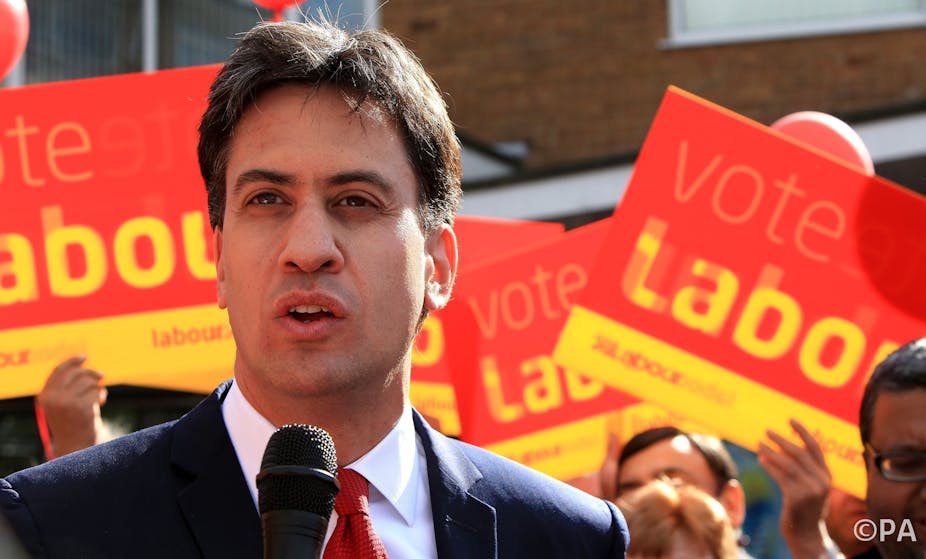There is a wobble going on in the Labour party over Ed Miliband’s leadership. A number of Labour backbenchers are said to be becoming increasingly nervous about retaining their seats in next year’s general election. This has largely come about because of unfavourable comparisons in the polls between the prime minister and the Labour leader.
But – as often is the case when it comes to measuring public opinion – the question asked plays a key role in influencing the answers. Our monthly surveys of the electorate conducted at the University of Essex show that in September of this year, 33% of respondents thought David Cameron is the best prime minister and only 19% thought this about Miliband.
Asking who is the best leader is a standard question used by a lot of pollsters to compare the party leaders. However, it is far from an ideal question because it tends to be biased towards the incumbent, regardless of whether they are Labour or Conservatives. The answers, therefore, can give a misleading picture of what people really think.
There is an alternative question which is much better. If you ask voters to provide a score out of ten on a likeability scale, where zero means that a respondent really dislikes a leader and ten means that they really like them, you get quite different results.
It turns out that likeability is closely associated with other desirable traits that a successful leader needs, such as being seen as competent, decisive, in touch with ordinary people and honest. More to the point, it is a powerful predictor of voting intentions and therefore a good guide to what people might do in the general election.
We’ve charted the likeability scores for the three major party leaders since June 2010 – the month after the general election – through to September 2014. It turns out that in September, the Labour leader had an average score of 3.9 compared with 4.2 for Cameron and 3.3 for Nick Clegg. So none of them are particularly popular.

The surveys do show that Cameron is indeed more popular than Ed Miliband and a lot more popular than his deputy, Clegg. But on this scale the prime minister is only 0.3 points ahead of the Labour leader, which is relatively small gap. In judging these scores it is important to remember that Miliband will be judged against Cameron and Clegg in the general election, not some ideal leader with a perfect score. It is the difference between leaders which counts, not the absolute scores on the scale.
The findings suggest Miliband’s unpopularity has been exaggerated in comparison with Cameron and clearly some Labour backbenchers are getting very anxious about what are relatively small differences, given that political leaders in general are none too popular.
The most striking gap existed between the likeability scores of the two major party leaders during the period from June to September 2010. This was when Gordon Brown was still the Labour party leader and his scores at that time compared with Cameron were abysmal. But the differences since Miliband became leader in September of that year have been relatively modest with the Labour leader eclipsing the prime minister on occasions in 2012 and 2013.
It is true that Miliband has trailed Cameron in 2014, but this is the result of the prime minister regaining some of the levels of popularity he had during the earlier part of the coalition government, rather than because he has lost popularity over time. Overall, Miliband has been averaging a score of about 4.0 since the start of 2012.
A breakdown of these scores by the voting intentions of respondents is quite instructive. Although Miliband’s score in September 2014 was 3.9, his score among Labour voters was 6.6. In that particular survey 35% of respondents were Labour voters with 33% Conservatives, 7% Liberal Democrats and 12% UKIP.
Labour voters gave Cameron a score of only 2.1 which does not suggest that large numbers of them are about to switch to the Conservatives because they find the prime minister attractive. This was the same score that Conservative voters gave Miliband, so the two leaders are equally disliked by the supporters of their rival parties.
Clearly, it would be to Labour’s advantage if their leader was well ahead of the prime minister in the likeability stakes, but the truth is that there is not much difference between them, certainly not enough to warrant the current panicking by some Labour backbenchers.

